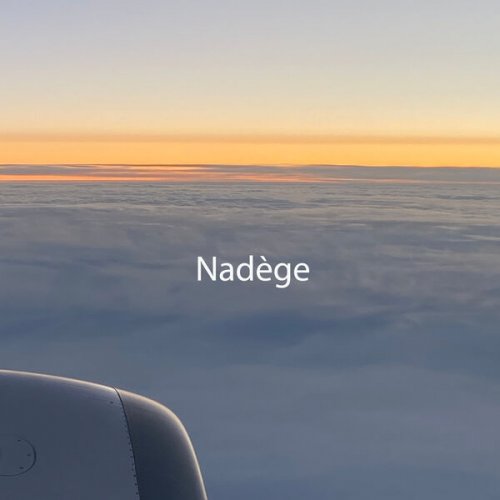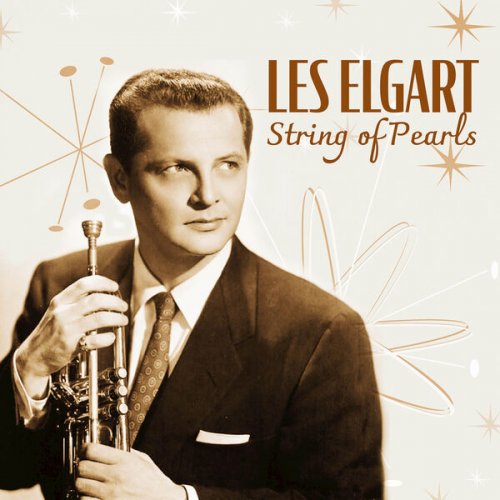Kristen Yeon-Ji Yun - Summerland - Music for Cello and Piano by Composers of African Descent (2020)
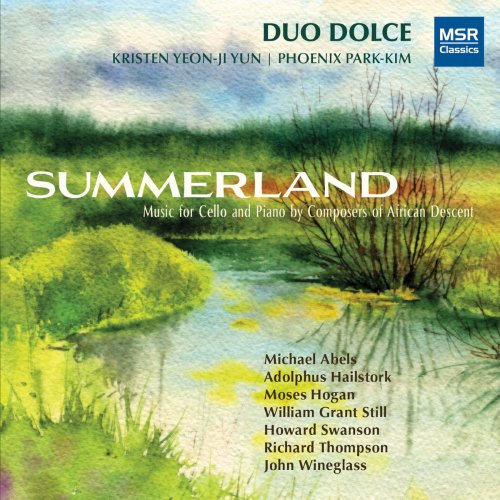
Artist: Kristen Yeon-Ji Yun
Title: Summerland - Music for Cello and Piano by Composers of African Descent
Year Of Release: 2020
Label: MSR Classics
Genre: Classical
Quality: FLAC (tracks)
Total Time: 77:11 min
Total Size: 307 MB
WebSite: Album Preview
Tracklist:Title: Summerland - Music for Cello and Piano by Composers of African Descent
Year Of Release: 2020
Label: MSR Classics
Genre: Classical
Quality: FLAC (tracks)
Total Time: 77:11 min
Total Size: 307 MB
WebSite: Album Preview
01. Summerland (Transcribed by Timothy Holley)
02. Mother and Child (Transcribed by Timothy Holley)
03. Suite for Cello and Piano: I. Prelude
04. Suite for Cello and Piano: II. Pantomime
05. Suite for Cello and Piano: III. Dirge
06. Suite for Cello and Piano: IV. Recessional Music
07. Piano Prelude No. 1
08. Piano Prelude No. 5
09. Theme and Variations on “Draw the Sacred Circle Closer”: I. Theme
10. Theme and Variations on “Draw the Sacred Circle Closer”: II. Variation 1
11. Theme and Variations on “Draw the Sacred Circle Closer”: III. Variation 2
12. Theme and Variations on “Draw the Sacred Circle Closer”: IV. Variations 3 and 4
13. Theme and Variations on “Draw the Sacred Circle Closer”: V. Variation 5
14. Piano Suite No. 2 “Times of Solitude” : I. A Midsummer Waltz
15. Piano Suite No. 2 “Times of Solitude” : II. The Journey
16. Piano Suite No.2 “Times of Solitude” : III. Distant Memories
17. Deep River (Spiritual)
18. Let Us Break Bread Together (Spiritual)
19. Give Me Jesus (Spiritual)
20. Were You There (Spiritual)
21. Chris and Rose Love Theme (From the film :Get Out:, arranged by Ryan Reeson)
William Grant Still (1895-1978) is celebrated as the “Dean of African American Composers.” He was the first African American to conduct a major American symphony orchestra, the first to have a symphony performed by a leading orchestra and the first to have an opera performed by a major opera company. Summerland is the second piece of his Three Visions set. Originally composed for solo piano, it depicts the mystery of life and death. Still was especially fond of this movement and its evocation of heaven, having arranged it for nine different instrumental combinations. Mother and Child, originally the second movement of his Suite for Violin and Piano of 1943, was inspired by Sargent Johnson’s lithograph entitled “Mother and Child”. Johnson said of his art that it “aims to show the natural beauty and dignity of the American Negro”. The lush and lyrical piece, which is in ternary form, features a blend of European musical tradition and African vocal heritage. William Grant Still later arranged it for string orchestra.
The Suite for Cello and Piano by Howard Swanson (1907-1978) was published in 1951 and premiered by Bernard Greenhouse at Town Hall in New York in the same year. The Suite features a fascinating blend of polytonality, traditional forms and contrapuntal texture. The first movement, Prelude, is of a traditional structure (A-B-A) and has shallow and mysterious melodies in the cello’s high register. Pantomime, the second movement, presents humorous melodies between the piano and cello with fast dynamic changes. A funeral march, Dirge has a brooding bass ostinato with polytonality between the cello and piano. The last movement, Recessional, presents a melodious contrasting middle section between lively and rhythmic outer sections.
Richard Thompson (b.1960) is a composer and performer whose work encompasses the synthesis of jazz and classical forms. His Preludes Nos.1 and 5, which are part of a set of six, reflect virtuoso pianism and the influence of jazz harmonies. Prelude No.1 has a yearning melodic motive that builds to a climactic A major 7 chord, which dissolves through descending sixteenth-note rhythmic figurations to a somber C minor. In contrast, Thompson’s Prelude No.5 is a whimsical scherzo that demands a light touch and great clarity on the part of the performers.
The Theme and Variations on “Draw the Sacred Circle Closer” by Adolphus Hailstork (b.1941), composed in 2009, employs several musical techniques to create a sense of polyphony. The “Draw the Sacred Circle Closer” theme, a spiritual from the final chorus of the composer’s cantata Earthrise, has a simple but moving melody and is accompanied by left hand pizzicato on the cello. The theme is varied with lively compound rhythms in the first variation Sprightly. The second variation, Playful, requires alternation of rhythmic and melodic elements and dramatic tempos. The slow third and fourth variations present a heightened contrapuntal aspect by using high and low strings. The animated fifth variation has outgoing melodic figures in a wide range, from the lowest to the very highest notes of the cello.
The Piano Suite No.2 by John Wineglass (b.1972) is written in the Romantic tradition, and is strongly influenced by the music of Chopin. From the composer: “Herein are present three examples of music with the feel and sound of complete solitude. From A Midsummer Waltz describing God (alone) ‘walking in the garden in the cool of the day’ looking for Adam (from the Book of Genesis, 3:8) to The Journey of the prodigal son (from Luke 15:8) and his subsequent return [which is also exemplified thematically (A-B-A) throughout the work], one can almost fathom a nocturnal effect. And although Distant Memories is a reflection upon my own life, setting a different context, it still effectively yearns for companionship.”
Moses Hogan (1957- 2003) was a pianist, arranger and conductor, best known for his settings of traditional Negro spirituals. Born out of the hardship and anguish of slavery, spirituals are songs of hope and of faith in God, who sustained the enslaved while in bondage. The songs possess melodies of profound beauty and convey deeply moving expressions of the resiliency of the human spirit. Hogan’s choral arrangements of these spirituals are celebrated worldwide, and display his mastery of classical technique with a refined harmonic sensibility.
Composer Michael Abels (b.1962) specializes in orchestral music and opera, and also writes for film. The Chris and Rose Love Theme, taken from his score for the 2017 film Get Out, uses lowered third and seventh notes of a traditional blues scale, giving the piece a smoky feel. A mournful cello melody depicting the love and betrayal between the main characters of the film is accompanied by special wind chime effects in the piano part.
DUO DOLCE, consisting of cellist Kristen Yeon-Ji Yun and pianist Phoenix Park-Kim, collaborate in performances praised for their beautiful tone and affecting expression. The duo has performed and given master classes throughout the United States, South Korea, Spain, Mexico and Taiwan. Particularly noteworthy engagements include lecture-recital performances at the College Music Society National Conferences and a featured ensemble performance for the Symphony of Brotherhood Concert in Los Angeles commemorating the 50th Anniversary of the “I Have a Dream” speech given by Dr. Martin Luther King Jr., for which the duo received special congressional recognition by Congresswoman Karen Bass. In the 2011 Liszt-Garrison International Collaborative Artists Competition, Duo Dolce was one of three finalists and received Honorable Mention.
Kristen Yeon-Ji Yun is active as a soloist, chamber musician, scholar and clinician. She has performed as a soloist with numerous orchestras, including the Grand Junction Symphony Orchestra, Colorado Mesa University Orchestra, Indiana University Orchestra and abroad with the Korean Symphony Orchestra. Yun has toured in many countries, including France, Italy and Spain; in Mexico; and in China, Hong-Kong, Malaysia, South Korea, Taiwan and Thailand, giving concerts and master classes. Yun, who has held positions in the Lafayette Symphony and Korean Symphony, is currently Co-Principal Cello in the Grand Junction Symphony. She has also won prizes in competitions around the world, including the 2008 IBLA World Competition in Italy. Yun has a Master’s and a Bachelor’s degree in Cello Performance from Seoul National University. She received a Doctor of Music on cello performance in 2012 from Indiana University at Bloomington, where she studied with the world famous cellist Janos Starker. Yun, who performs on a French cello made by Guersan in 1766, is currently an Associate Professor at Colorado Mesa University. She previously taught at Indiana Wesleyan University, DePauw University, Indiana University String Academy and Indiana University Jacobs School of Music.
Phoenix Park-Kim began playing the piano at age five, giving her first public performance at seven. Park-Kim has appeared as a soloist with the Kansas City Philharmonia, Fishers Chamber Orchestra, University of Missouri-Kansas City Orchestra, Marion Philharmonic Orchestra and abroad with the Atlántida Symphony Orchestra in Spain and Korean Philharmonic Orchestra, among others. An avid chamber musician, she has performed with the Oxford String Quartet, Soprani Compagni and has appeared at Weill Recital Hall at Carnegie Hall as part of the Distinguished Concerts Artist Series. Park-Kim, who has been heard on radio in California, Illinois, Indiana, Ohio, Michigan, New Jersey, Virginia and in Canada, has won top prizes at numerous competitions, including First Place at the Miami Concerto Competition, Jefferson City Concerto Competition and Kansas City Philharmonic Concerto Competition. Dedicated to increasing the exposure of lesser known repertoire, especially music by composers of African descent, she has made great strides in doing so, both on stage and in recordings. Park-Kim is currently Professor of Piano at Indiana Wesleyan University.
The Suite for Cello and Piano by Howard Swanson (1907-1978) was published in 1951 and premiered by Bernard Greenhouse at Town Hall in New York in the same year. The Suite features a fascinating blend of polytonality, traditional forms and contrapuntal texture. The first movement, Prelude, is of a traditional structure (A-B-A) and has shallow and mysterious melodies in the cello’s high register. Pantomime, the second movement, presents humorous melodies between the piano and cello with fast dynamic changes. A funeral march, Dirge has a brooding bass ostinato with polytonality between the cello and piano. The last movement, Recessional, presents a melodious contrasting middle section between lively and rhythmic outer sections.
Richard Thompson (b.1960) is a composer and performer whose work encompasses the synthesis of jazz and classical forms. His Preludes Nos.1 and 5, which are part of a set of six, reflect virtuoso pianism and the influence of jazz harmonies. Prelude No.1 has a yearning melodic motive that builds to a climactic A major 7 chord, which dissolves through descending sixteenth-note rhythmic figurations to a somber C minor. In contrast, Thompson’s Prelude No.5 is a whimsical scherzo that demands a light touch and great clarity on the part of the performers.
The Theme and Variations on “Draw the Sacred Circle Closer” by Adolphus Hailstork (b.1941), composed in 2009, employs several musical techniques to create a sense of polyphony. The “Draw the Sacred Circle Closer” theme, a spiritual from the final chorus of the composer’s cantata Earthrise, has a simple but moving melody and is accompanied by left hand pizzicato on the cello. The theme is varied with lively compound rhythms in the first variation Sprightly. The second variation, Playful, requires alternation of rhythmic and melodic elements and dramatic tempos. The slow third and fourth variations present a heightened contrapuntal aspect by using high and low strings. The animated fifth variation has outgoing melodic figures in a wide range, from the lowest to the very highest notes of the cello.
The Piano Suite No.2 by John Wineglass (b.1972) is written in the Romantic tradition, and is strongly influenced by the music of Chopin. From the composer: “Herein are present three examples of music with the feel and sound of complete solitude. From A Midsummer Waltz describing God (alone) ‘walking in the garden in the cool of the day’ looking for Adam (from the Book of Genesis, 3:8) to The Journey of the prodigal son (from Luke 15:8) and his subsequent return [which is also exemplified thematically (A-B-A) throughout the work], one can almost fathom a nocturnal effect. And although Distant Memories is a reflection upon my own life, setting a different context, it still effectively yearns for companionship.”
Moses Hogan (1957- 2003) was a pianist, arranger and conductor, best known for his settings of traditional Negro spirituals. Born out of the hardship and anguish of slavery, spirituals are songs of hope and of faith in God, who sustained the enslaved while in bondage. The songs possess melodies of profound beauty and convey deeply moving expressions of the resiliency of the human spirit. Hogan’s choral arrangements of these spirituals are celebrated worldwide, and display his mastery of classical technique with a refined harmonic sensibility.
Composer Michael Abels (b.1962) specializes in orchestral music and opera, and also writes for film. The Chris and Rose Love Theme, taken from his score for the 2017 film Get Out, uses lowered third and seventh notes of a traditional blues scale, giving the piece a smoky feel. A mournful cello melody depicting the love and betrayal between the main characters of the film is accompanied by special wind chime effects in the piano part.
DUO DOLCE, consisting of cellist Kristen Yeon-Ji Yun and pianist Phoenix Park-Kim, collaborate in performances praised for their beautiful tone and affecting expression. The duo has performed and given master classes throughout the United States, South Korea, Spain, Mexico and Taiwan. Particularly noteworthy engagements include lecture-recital performances at the College Music Society National Conferences and a featured ensemble performance for the Symphony of Brotherhood Concert in Los Angeles commemorating the 50th Anniversary of the “I Have a Dream” speech given by Dr. Martin Luther King Jr., for which the duo received special congressional recognition by Congresswoman Karen Bass. In the 2011 Liszt-Garrison International Collaborative Artists Competition, Duo Dolce was one of three finalists and received Honorable Mention.
Kristen Yeon-Ji Yun is active as a soloist, chamber musician, scholar and clinician. She has performed as a soloist with numerous orchestras, including the Grand Junction Symphony Orchestra, Colorado Mesa University Orchestra, Indiana University Orchestra and abroad with the Korean Symphony Orchestra. Yun has toured in many countries, including France, Italy and Spain; in Mexico; and in China, Hong-Kong, Malaysia, South Korea, Taiwan and Thailand, giving concerts and master classes. Yun, who has held positions in the Lafayette Symphony and Korean Symphony, is currently Co-Principal Cello in the Grand Junction Symphony. She has also won prizes in competitions around the world, including the 2008 IBLA World Competition in Italy. Yun has a Master’s and a Bachelor’s degree in Cello Performance from Seoul National University. She received a Doctor of Music on cello performance in 2012 from Indiana University at Bloomington, where she studied with the world famous cellist Janos Starker. Yun, who performs on a French cello made by Guersan in 1766, is currently an Associate Professor at Colorado Mesa University. She previously taught at Indiana Wesleyan University, DePauw University, Indiana University String Academy and Indiana University Jacobs School of Music.
Phoenix Park-Kim began playing the piano at age five, giving her first public performance at seven. Park-Kim has appeared as a soloist with the Kansas City Philharmonia, Fishers Chamber Orchestra, University of Missouri-Kansas City Orchestra, Marion Philharmonic Orchestra and abroad with the Atlántida Symphony Orchestra in Spain and Korean Philharmonic Orchestra, among others. An avid chamber musician, she has performed with the Oxford String Quartet, Soprani Compagni and has appeared at Weill Recital Hall at Carnegie Hall as part of the Distinguished Concerts Artist Series. Park-Kim, who has been heard on radio in California, Illinois, Indiana, Ohio, Michigan, New Jersey, Virginia and in Canada, has won top prizes at numerous competitions, including First Place at the Miami Concerto Competition, Jefferson City Concerto Competition and Kansas City Philharmonic Concerto Competition. Dedicated to increasing the exposure of lesser known repertoire, especially music by composers of African descent, she has made great strides in doing so, both on stage and in recordings. Park-Kim is currently Professor of Piano at Indiana Wesleyan University.

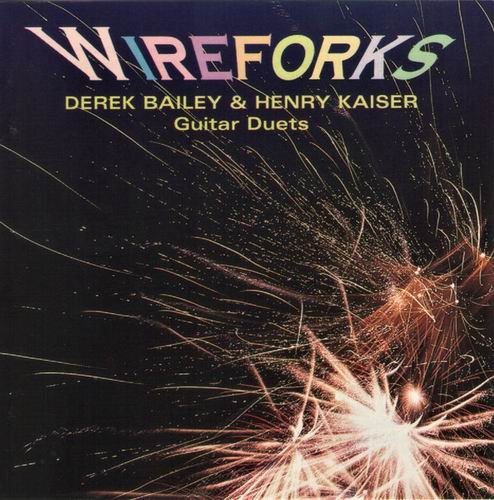
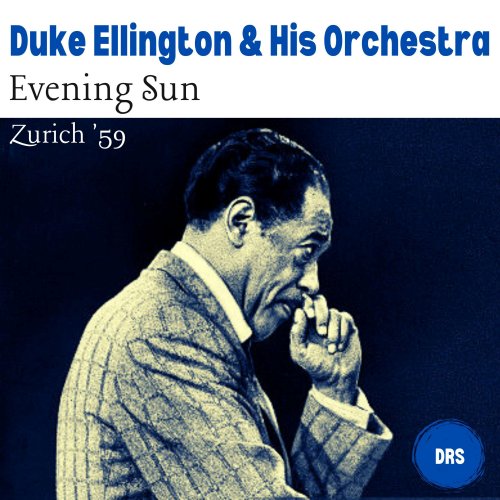
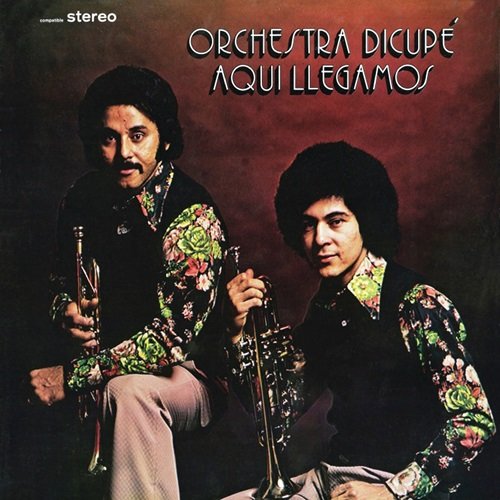
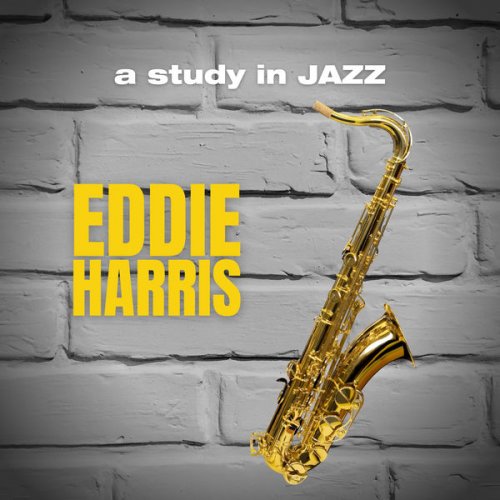
![Jake Baxendale - Gardening Music, Volume 1 (2025) [Hi-Res] Jake Baxendale - Gardening Music, Volume 1 (2025) [Hi-Res]](https://img.israbox.com/img/2026-01/12/h1xq4dp1lh5mal47e7fhs2e8t.jpg)

